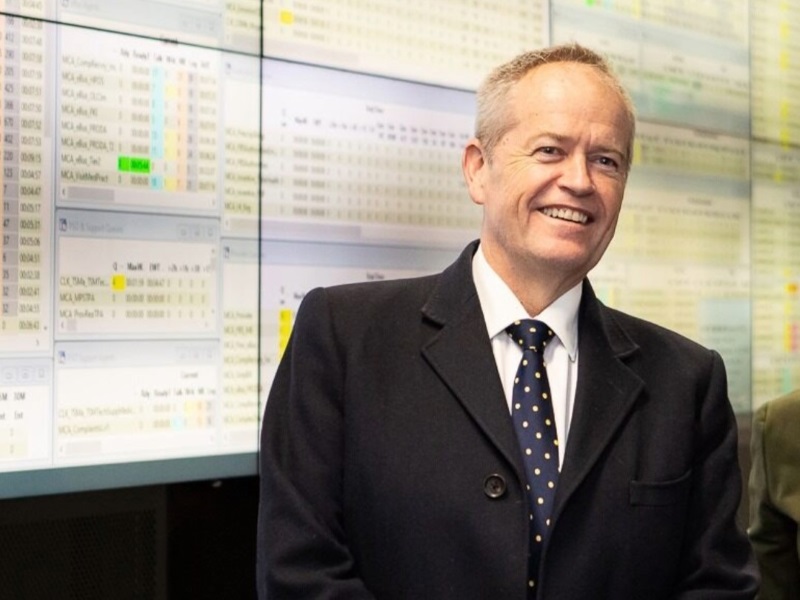Australia’s largest bank and a medical centre have signed on to test Canberra’s verifiable credentials project, which is promising to harden the nation against cyber attacks and scams by draining the data honeypot.
While still at a proof-of-concept stage, the Services Australia TEx project announced in August could also leave a mark for outgoing government services minister Bill Shorten.
It has already coopted all the major banks, telecommunications companies, Google, Apple, seek.com and private identity providers, while briefings are being provided to the Opposition to build bipartisan consensus in a project that would take years to deliver.
The “world leading” exchange was unveiled in August and aims to let users verify their identity and credentials based on government-held information via a digital wallet, starting with the myGov wallet.

The plain text version of the documents never actually change hands, with TEx instead facilitating a government confirmation that validates the identity or credential.
It could mean easier and more secure access to government services, sign-ins at clubs and pubs, and smoother private services like banking.
Mr Shorten says wide uptake will drastically lessen the reliance on companies handling and storing sensitive information like licences and passport copies, while also making the data less valuable to nefarious actors, criminal syndicates and scammers.
“In short, it is going to protect Australians’ personal information from being stolen, mined or stored,” Mr Shorten told InnovationAus.com.
“By moving to a system where individuals are able to provide proof of identity and what they can do via cryptographically verified credentials, there will be no value in unsecured data, thus making it fool’s gold.”
The Commonwealth Bank of Australia is understood to be engaged in the design of real world scenarios like using TEx to open a bank account and Services Australia is also exploring the exchange’s potential for registering new patients at medical centres.
The agency is also working a proof of concept for individuals to verify their age to access other government services, but the work is so far separate from the Albanese government’s proposed ban of social media for under 16-year-olds.
In an update to the tech sector, Mr Shorten on Monday said TEx could “massively change the way we operate”.
“All that is exchanged is a digital token – what amounts to a digital thumbs up by the Australian Government,” Mr Shorten told a Tech Council of Australia’s event in Melbourne
“This means businesses and services get only the information they need and carrying physical cards and documents becomes a thing of the past.”
In February, Mr Shorten departs politics but says the momentum for digital services will continue under a new advisory council and a securely funded myGov platform.
As he leaves, the results from the TEx proof of concept will be shared with the Department of Finance and a decision will be made on moving to a pilot that would open the door to more credentials, use cases and non-myGov wallets.
Around 6 million people use the government’s myGov App, with around 1.5 million digital cards and certificates added to its wallet function.
Millions more Australians are using private digital wallets like Apple, Google and Samsung.
State and territory data and digital ministers in June agreed to a Digital ID and Verifiable Credentials Strategy, which Mr Shorten says is complementary to the federal project, which is using open standards and has future interoperability in mind.
“We want Australians to be able to use their digital credentials across the Commonwealth, state, and private sectors, through the wallets of their choice.”
Do you know more? Contact James Riley via Email.

